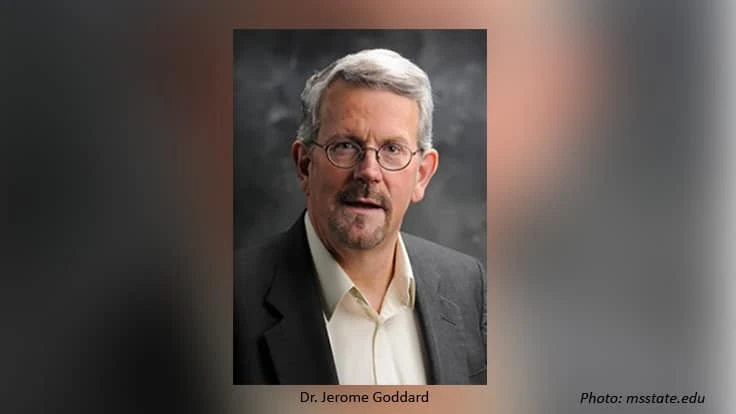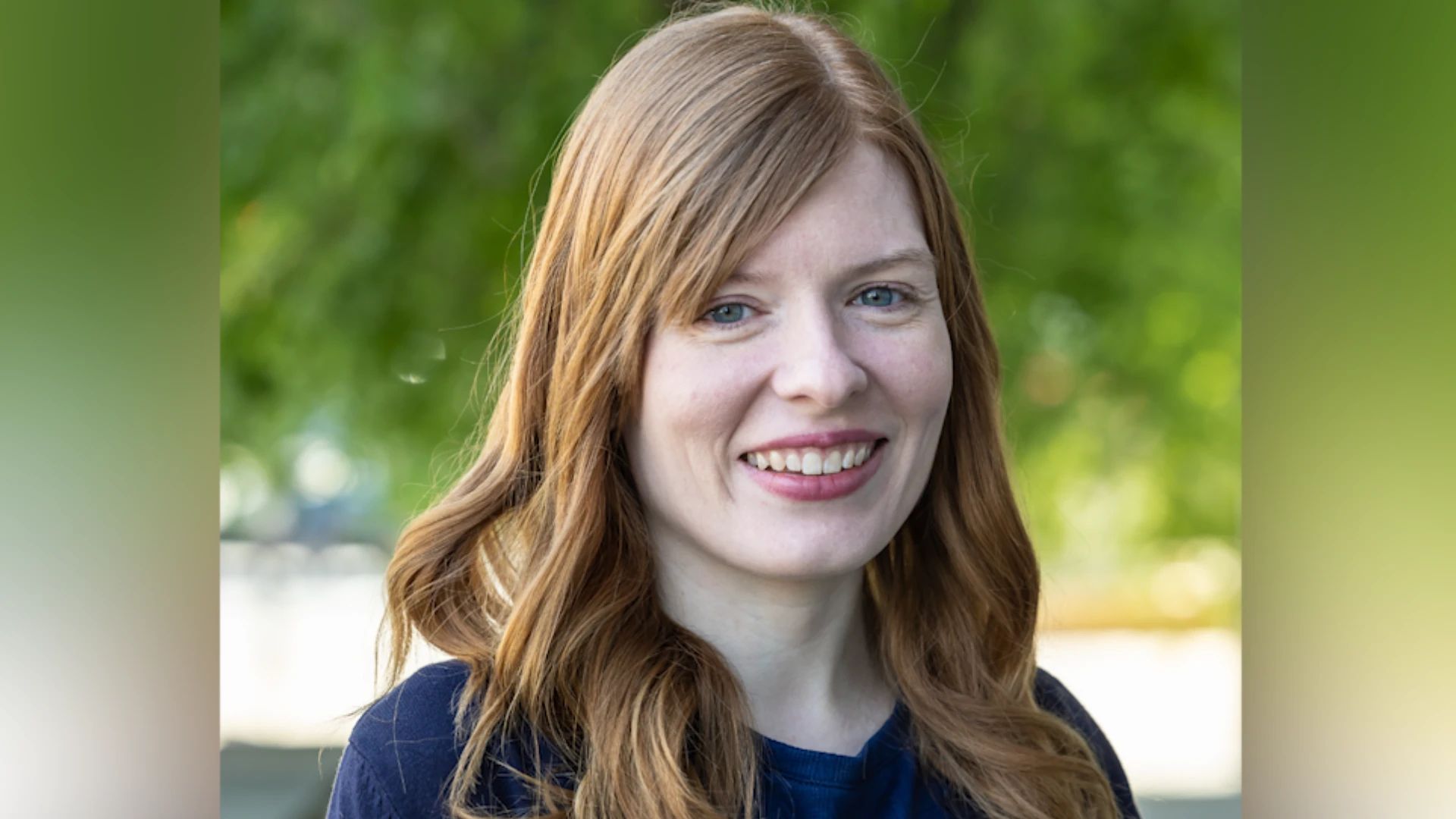
Editor’s Note: These comments by Dr. Goddard concerning the recent coronavirus pandemic are based on his previous experience as a public health official at the Mississippi Department of Health and may not necessarily represent the opinions and views of the Mississippi State University Extension Service.
Dr. Jerome Goddard, extension professor of medical entomology at Mississippi State University, is a frequent speaker at industry educational events and a well-known figure throughout the pest management industry.
Goddard’s prior work (1989-2008) as a medical entomologist for the Mississippi State Department of Health’s Bureau of Environmental Health took up the majority of his professional life to-date. However, he also has served as an affiliate faculty member in the department of medicine at the University of Mississippi School of Medicine in Jackson. In his current professor role, Goddard teaches classes, serves on graduate student committees, performs written and oral entomological and educational outreach activities statewide, and participates in medical research.
“A big part of my job as an extension professor is to communicate to both the medical community and to the citizens because I am a public servant,” he says. “I’m paid by the taxpayers of Mississippi, and they’re my clients. I’m responsive to their needs.”
 Goddard is also a published author, having written more than 200 scientific articles, eight books and six book chapters. One of his books, Physician’s Guide to Arthropods of Medical Importance, is in its seventh edition and was recently re-named the Goddard Guide to Arthropods of Medical Importance. It is a valuable reference book used by doctors throughout the world. He is also a writer of fiction. In fact, his second novel titled, The Well of Destiny, is a fictional account of a deadly mosquito-borne disease outbreak in southeast Mississippi.
Goddard is also a published author, having written more than 200 scientific articles, eight books and six book chapters. One of his books, Physician’s Guide to Arthropods of Medical Importance, is in its seventh edition and was recently re-named the Goddard Guide to Arthropods of Medical Importance. It is a valuable reference book used by doctors throughout the world. He is also a writer of fiction. In fact, his second novel titled, The Well of Destiny, is a fictional account of a deadly mosquito-borne disease outbreak in southeast Mississippi. While COVID-19 is not an insect-borne disease, we wondered what Dr. Goddard thought of the all too real-global pandemic that has caused thousands of deaths and shaken financial markets around the world. That’s because we recalled several speeches in the not-too-distant past where Goddard addressed the topic of a global pandemic at various industry educational events. Perhaps you do too?
So when the full extent of the pandemic became clear in the United States, PCT reached out to the esteemed medical entomologist and author, asking Goddard to share his thoughts about COVID-19, as well as respond to several questions. A transcript of that interview follows:
Thanks for reaching out. Only one of my fiction novels describes a disease outbreak (Well of Destiny), but that was a local outbreak within one state. Having said that, the book did describe rather draconian measures to lock-down a wide area and prevent travel into and out of Mississippi.
Here are my thoughts on this current situation. Please keep in mind that I’m not a physician or epidemiologist. However, I spent considerable time working in public health, so I at least know the language of public health.
I think what you’re thinking of is a presentation I used to give around the country called something like, “What are we going to do when the slate-wiper comes?” That talk originated about 20 years ago after I heard one of the top virologists in the world give a scientific presentation in which he began by saying, “Ladies and gentlemen, it’s just a matter of time before we have the “slate-wiper.” People in the audience gasped and moaned.
At first I didn’t get it. I knew about windshield wipers. I knew about baby rear-end wipers. But what was a slate-wiper? Then as he continued, it dawned on me . . . he meant a virus that “wipes the slate” of the human population. That doesn’t mean total extinction, necessarily, but certainly a disease outbreak that brings the population back down to low levels.
He said that kind of thing is common in all wildlife species – die-offs. Obviously, this concerned me greatly, and I subsequently developed a talk about a coming slate-wiper, and specifically one carried by insects since I’m an entomologist. I gave the talk a lot for several years, then people seemed to lose interest in my doomsday scenario.
Looking back, it was a prescient talk and prophetic in some ways. But I’m not in any way saying I saw this coming. And maybe people in high-up positions in public health have seen this for years and been planning. I’m not saying they haven’t.
One of the biggest takeaways I get from this coronavirus outbreak is these kinds of things can’t be stopped ... only managed. It’s an illusion to think otherwise. Within three weeks of the outbreak in Wuhan China this virus was all over the world.
Do you remember when the first cases started showing up in the U.S.? There were three cases – one in California, one in Oregon, and one in Washington state – with no connection whatsoever to each other. Finally, public health officials concluded that the virus had likely already been here for six weeks! Due to international travel, these things can move around freely. It takes about a year to make a vaccine. If the virus has a mortality rate of 50% or so, it could kill half the world before it gets stopped. That’s slate-wiper proportions.
Fortunately, COVID-19 is not the slate-wiper. This virus is mild or asymptomatic in 80% of people. The mortality rate is reported to be about 3%, but in reality (if you include the asymptomatic and mild cases never seen by a doctor) the actual mortality rate of new coronavirus is likely around 1%. Think about this – MERS (another coronavirus) broke out a while back and it had a mortality rate of 34%! Thank God that one died out and didn’t spread.
How does an event like this affect me personally/philosophically? Like Hurricane Katrina, it makes me realize that relationships are all that’s really important. Your job, your stuff (toys), your hobbies – while not bad, are temporary and fleeting. What WE DO is not WHO WE ARE. Relationships, both personal and professional, are all that matter when it’s all over.
If I die from this or any other cause, I want to have been known as a person who took time to listen to others, pay attention to others, and (for a moment at least) help them feel significant and important. – Dr. Jerome Goddard
PCT: Are you surprised by how dramatically the coronavirus outbreak has impacted the world, both socially and economically in such a short period of time?
GODDARD: No, I’m not really surprised. Human civilization and social structure are tenuous and can quickly fall apart. We’re just a few steps away from barbarism. It reinforces to me the idea that we need to work hard to unite around common themes and goals such as love, kindness and justice. We need to care about others … no, we don’t have to all agree, but surely there are some common themes we can agree on.
PCT: Was it inevitable a pandemic like this would one day impact the United States?
GODDARD: Yes, definitely. I think periodic pandemics are inevitable. Human history is fraught with plagues and pestilences.
PCT: What role, if any, should the pest control industry play in lessening the long-term impact of the pandemic?
GODDARD: Pest control is a public health function, so I think it should (and will) remain in operation during this and similar events that may happen in the future. Although I’m not a pesticide regulator, I don’t think there’s anything wrong with pest control people playing a role in “dis-infecting” a house or workplace. There are labeled products which can be sprayed in dwellings for general sanitizing. Again, this issue needs to be approved by regulators and insurance companies.
PCT: In your role as a medical entomologist, are you receiving questions from PMPs and the public about the pandemic even though it is not an entomologically based phenomenon?
GODDARD: Yes, I get many questions from PMPs and the general public about coronavirus and this current pandemic. I try to answer their questions with facts, truth and (providing) hope, but also direct them to other sources of information such as their state health department and the CDC. I always qualify my comments that I’m not a physician.
PCT: What would be your advice to PMPs and the public in coming to terms with the pandemic and the resulting impact on their personal and professional lives?
GODDARD: I think people need to remain calm. This outbreak will end. There may be severe economic damage afterwards, but the pandemic will be over. As more and more people get sick (and live), at some point, “herd immunity” will kick in and thus the spread of the virus will slow. I also think people should avoid constantly watching the news about coronavirus. It just works them into a frenzy. I say check the news about coronavirus twice a day, but other than that, go outside, let the wind tickle your face, listen to the birds. When doing that, it doesn’t seem so alarming. The point/purpose to all these “lock-downs” is not necessarily to stop the epidemic, only to slow it enough that the healthcare system doesn’t get overwhelmed.
Latest from Pest Control Technology
- Finding Qualified Workers, Low-Ball Competitors Top PCO Concerns for 2025
- Rose Pest Solutions Announces Leadership Title Changes
- Truly Nolen Announces Three Promotions
- All Seasons Pest Control (Texas) Acquired by Barefoot Mosquito & Pest Control
- Insects Limited Announces Leadership Changes, Promotions for Continued Growth
- Rockwell Labs Adds Gill as Mid-Atlantic Region Technical Sales Representative
- OvoControl Now Registered Internationally for Use in the UAE
- Cindy Jones Becomes First Woman President of CPCO of Georgia





